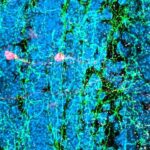Link to Pubmed [PMID] – 32056918
Link to HAL – pasteur-03261839
Link to DOI – 10.1016/j.jad.2020.01.081
J Affect Disord 2020 Apr; 266(): 498-502
Olfactory deficits (OD) are reported as markers for a large spectrum of neuro-psychiatric disorders. Alterations can concern perception, identification, discrimination and assignment of odour’s valence of olfaction process. We propose a comprehensive review to summarize which kind of OD were reported in bipolar disorders (BD) and in which phase of the disease, to know if they could be a marker of state or trait.A Systematic Literature Review was conducted using PRISMA guidelines to include all studies assessing olfaction with objective measures in BD.9 studies were identified. All of them have assessed odour identification and 3 reported deficits mainly in patients with psychotic features or elements of illness severity in comparison to healthy subjects. There is no difference in threshold of perception between BD patients and controls and it is no possible to conclude for discrimination because only one study has assessed this dimension in comparison to control. We cannot conclude for hedonic value of odours regarding these studies.These studies are very incomplete because only one has evaluated all the processes involved in olfaction process.In light of this review, evidence is still missing to unveil potential disturbances of olfactory process as a marker of BD. These new avenues of research could help to clarify the links between OD and BD and provide information on the pathophysiology of the disorder according to the impaired dimension.



